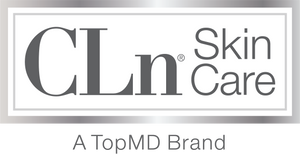
Skincare is constantly evolving, with researchers and dermatologists seeking new ways to combat skin issues effectively and safely. Two ingredients that have gained attention for their unique benefits are sodium hypochlorite and salicylic acid. While they are often considered separately, understanding each one's function and the benefits of combining them can open new possibilities for skincare treatments.
Sodium Hypochlorite: A Surprising Skincare Ingredient
Sodium hypochlorite, commonly known as a component in bleach, is utilized in skincare in much more diluted forms. Its primary benefit in skincare is its ability to reduce inflammation and microbial presence on the skin, making it a useful component for conditions like eczema and dermatitis. According to a Stanford study, sodium hypochlorite can help mitigate the aging process of the skin by targeting specific pathways linked to inflammation and skin damage.
Skincare formulations with sodium hypochlorite, like CLn Acne Cleanser, are designed to be safe and gentle on the skin while still providing effective microbial control. Benefits of sodium hypochlorite include helping cleanse wounds, reducing microbial presence, and supporting the healing process without harsh side effects typically associated with stronger bleach formulations.
Despite its efficacy, sodium hypochlorite must be handled carefully. It's a potent oxidizing agent that can react adversely with various substances and is not stable over long periods, necessitating fresh preparations for optimal effectiveness (Stanford EHS).
Salicylic Acid: A Skincare Standard
Salicylic acid, a well-known beta hydroxy acid, excels in penetrating pores and dissolving the mix of sebum and dead skin cells that lead to acne. Beyond its pore-clearing abilities, it’s noted for its anti-inflammatory properties, which help reduce redness and swelling, making it a staple in acne treatment regimens.
The effectiveness of salicylic acid in managing acne and improving skin texture is well-documented, making it a favorite in various skincare formulations, from cleansers to toners and spot treatments.
Powerful Combination
While sodium hypochlorite and salicylic acid each have distinct properties, their combination in skincare is not typical due to potential incompatibilities in their formulation. Sodium hypochlorite's strong oxidizing nature can interfere with other skincare ingredients and should be formulated carefully to avoid destabilization.
However, if used sequentially and with proper formulation, these ingredients become a powerful combination. That’s why it’s essential to choose trust-worthy skincare brands to avoid potential side effects such as skin irritation or allergic reactions.
Sodium hypochlorite and salicylic acid both have distinct mechanisms that can complement each other, enhancing the overall efficacy of the product. Sodium hypochlorite's ability to reduce microbial presence and soothe inflammation pairs well with salicylic acid's proficiency in clearing pores and reducing acne. This combination can be particularly beneficial in treating acne-prone skin that is also sensitive or inflamed.
Products like the CLn Acne Cleanser combine sodium hypochlorite and 0.5% salicylic acid in a formulation that is gentle enough for compromised skin, illustrating the practical application of these ingredients in daily skincare routines.
The CLn Acne Cleanser offers a dual approach to acne treatment. This cleanser is designed to tackle tough acne without causing dryness or irritation, making it ideal for oily to combination skin types prone to acne, including severe forms like nodules and cysts. Its formula is free from common irritants like parabens, dyes, and fragrances, making it hypoallergenic and suitable for sensitive skin.
How It Works:
- Fights Bacteria & Exfoliates: By combining salicylic acid and sodium hypochlorite, it not only clears out pores but also reduces bacterial growth, effectively preventing future breakouts.
- Advanced Acne Treatment: The therapeutic gel formula ensures that acne is treated without harsh side effects, such as over-drying or bleaching fabrics.
- Usage: Suitable for daily use, it is applied by massaging a small amount onto the wet skin of the affected area, rinsed off after 30 seconds, potentially followed by CLn Facial Moisturizer or other topical treatments as recommended.
Why Choose CLn Acne Cleanser?
Choosing the right skincare product is crucial, especially for those with sensitive or acne-prone skin. The CLn Acne Cleanser provides a scientifically backed, dermatologist-developed solution that tackles both the causes and symptoms of acne without compromising the skin's health.
If you're looking for a gentle yet effective acne treatment, consider trying the CLn Acne Cleanser. It's designed to deliver clear skin and confidence without the common drawbacks of many acne therapies:
- It avoids the harsh drying effects often seen with topical acne treatments.
- The hypoallergenic formula is designed to minimize allergic reactions.
- It offers an effective cleanse without the risk of bleaching clothes or towels, a common concern with acne products containing benzoyl peroxide.
Simplifying Skincare with Sodium Hypochlorite and Salicylic Acid
The combination of sodium hypochlorite and salicylic acid is like a powerhouse for those struggling with acne, especially if you have sensitive skin. Sodium hypochlorite fights germs and soothes irritated skin, while salicylic acid helps unclog pores and reduces redness. Together in products like the CLn Acne Cleanser, they offer a balanced solution—tackling acne without harsh effects, like drying out your skin or irritating it further. Visit CLn website now to purchase yours and start your best skincare regimen!
Disclaimer: Unless otherwise explicitly stated, the content on this blog, including all articles, videos, and other information, is for
general informational purposes only and is not intended to be a substitute for professional medical advice,
diagnosis, or treatment. Always seek the advice of your physician or another qualified health provider with any
questions you may have regarding a medical condition or treatment and before undertaking a new health care regimen.
Never disregard professional medical advice or delay in seeking it because of something you have read on this website.
The views expressed on this blog and website have no relation to those of any academic, hospital, health practice,
or other institution.
